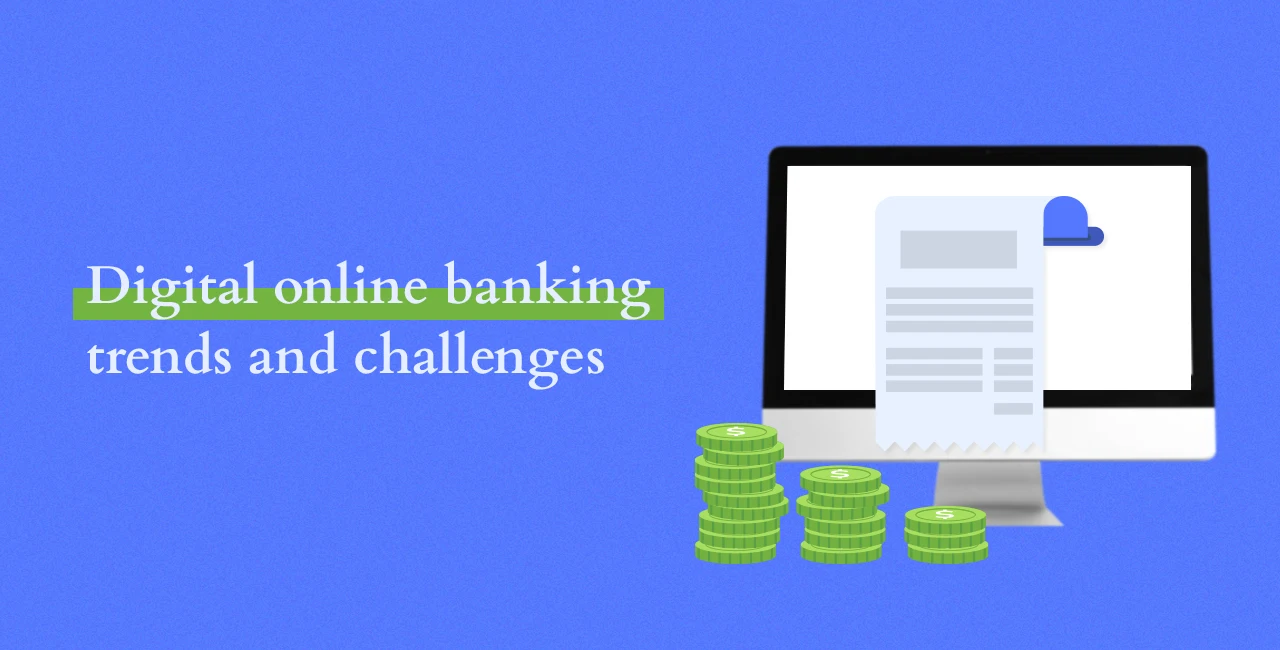Digital banking means the shift of all banking transactions from brick-and-mortar bank services to the Internet. Digital technology provides services such as setting up a bank account, transferring funds, and making withdrawals. Moving to the online space allows you to save money on opening bank branches.
Digital banking has fundamentally reshaped modern-day business strategies, ushering in rapid technological advancement and global connectivity.
Part 1: Modern Business Environment and Digital Banking
The Role of Technology in Shaping Business Strategies
Technology, especially advancements in digital banking, plays a pivotal role in redefining traditional business models and strategies. Integrating innovative banking technologies is not just an added feature but a fundamental component in the evolution of business practices. Digital banking solutions are at the forefront of this transformation, from streamlining financial processes to enabling real-time analytics.
Macrotrends Influencing Global Business Practices
Several key global trends, from globalization to sustainability, shape strategies across various industries. These trends reshape business operations and interactions with customers and address market challenges. Implementing digital solutions, especially digital banking, is a significant factor in successfully navigating these trends.
Adapting to a Globalized Economy
The push toward globalization has caused companies to reevaluate and adapt their strategies to fit an expansive marketplace.
Digital banking is at the heart of this transition. By providing businesses with strategies and features such as multi-currency transactions, real-time international payments, and digital foreign exchange services, online and mobile banking platforms have become essential for expanding their reach beyond local markets.
These platforms enable the seamless conducting of financial operations in different countries, addressing issues such as currency fluctuations, varying banking regulations, and the need for fast transaction processing.

Sustainability and Digital Banking Services
Another significant trend is the growing emphasis on sustainability and environmental responsibility. Digital online banking aligns perfectly with this trend, offering eco-friendly alternatives to traditional banking methods. The shift from paper-based to digital transactions reduces the need for traditional physical banks, which reduces energy consumption and carbon emissions associated with maintaining and operating these spaces.
By integrating sustainability into their core operations through online banking, businesses contribute to environmental conservation and align with the values of a growing segment of eco-conscious consumers.
The Shift to Customer-Centric Business Models
Digital tools have emerged as enablers for more personalized, efficient, and engaging consumer interactions.
Moreover, online banking enhances consumer convenience significantly. Features such as digital banking, instant payments, and user-friendly interfaces ensure that payments are smooth, fast, and secure. According to a survey by PwC, 73% of customers point to customer experience as an essential factor in their purchasing decisions, highlighting the need to adopt technologies that streamline consumer interactions.

Part 2: Impact of Digital Online Banking on Financial Strategies
Enhanced Efficiency and Productivity with Digital Banking
Banking services have emerged as a critical driver of enhanced efficiency and productivity. By integrating digital banking solutions, businesses can significantly streamline their operations, eliminating many traditional inefficiencies associated with traditional banking institutions.
One of the primary benefits of digital banks in business is the reduction of time and effort involved in financial transactions and management. Often laden with paperwork and manual interventions, traditional banking processes can be time-consuming and error-prone. Digital banking solutions circumvent these challenges by offering automated, real-time capabilities for various financial tasks.
Streamlining Financial Operations
Digital banking services significantly streamline financial operations in several key areas:
- Payments and transfers: Instant payments and transfers eliminate delays in manual processing and clearance of funds. This means faster transaction times, improved cash flow, and quicker revenue realization.
- Account management: Digital banking provides real-time access to account information, enabling them to monitor and manage their financial status effectively. This access includes up-to-date insights into cash flow, pending transactions, and account balances.
- Automated reconciliation: Automated reconciliation features are essential for maintaining accurate financial records. This reduces the manual labor in matching transactions with bank statements, minimizing errors and saving valuable time.
- Customization and scalability: Digital banking is often customizable to meet a business’s unique needs. In more than one case, this means the bank offers flexible accounts and services that are scalable to accommodate growth, ensuring organizations stay within their bank infrastructure.
Revolutionizing Cash Flow Management
Digital banking services have been a game-changer in cash flow management for businesses. In an era where timely financial insights and swift transaction capabilities are crucial to maintaining a healthy cash flow, digital banking stands out as an essential tool. It offers various features that significantly enhance how businesses track, manage, and protect their financial health.
- Real-time payment tracking: One of the standout benefits of digital banking is the ability to track payments in real-time. This provides up-to-the-minute updates and eliminates the guesswork and delays often associated with traditional banking services.
- Automated invoicing: Automated invoicing capabilities streamline the invoicing and collections process. This automation saves time and reduces the likelihood of errors associated with manual invoicing, providing an additional competitive advantage.

Making Informed Financial Decisions
The shift from traditional brick-and-mortar banks to digital banks marks a pivotal change in business finance management. Digital banks offer detailed insights from transaction histories and categorized expenses, enabling businesses to analyze financial trends via computer or mobile device, an advancement over many banks.
With their extensive data, online banks enhance budgeting and forecasting, helping to accurately predict cash flows and plan expenses.
Risk assessment is another area where digital banks outshine their brick-and-mortar counterparts. They provide real-time financial information, which is crucial for identifying potential risks early, a feature that is less accessible in traditional banking.
Additionally, digital banking features include customized reporting, enhancing visibility to focus on specific financial metrics. This starkly contrasts the generalized services offered by brick-and-mortar banks.

Expanding Global Reach Through Digital Banking
Managing international financial operations effectively is crucial for growth and competitiveness. This banking sector provides essential support, offering efficient and reliable means for transfer money and payments across borders.

- Facilitating international transfers: Online banking simplifies the complexities often associated with international operations. It allows us to send and receive payments globally, overcoming geographical and currency barriers while saving time and money.
- Cost-effective solutions: Traditional international banking methods can be costly, with high transaction fees and unfavorable exchange rates. Online banking, however, often offers more competitive rates and lower fees, making it a cost-effective solution for global B2B transfers and payments. This affordability benefits businesses of all sizes looking to expand internationally with growth-enabling cost savings.
- Speed and transparency: Digital banking platforms streamline international transactions compared to traditional banking systems. The increased speed and transparency in processing payments and transfers contribute to better cash flow management and overall liquidity.
Managing Currency Risks and Expanding Internationally
One critical challenge in international business expansion is managing currency risks. Fluctuations in exchange rates can significantly impact profitability. Digital banking offers tools and features to mitigate these risks effectively.

- Currency exchange management: Digital banking platforms often include tools for managing currency exchange, allowing exchange rates monitoring.
- Multi-currency accounts: Many banks provide multi-currency accounts to hold, manage, and transact in multiple currencies. This capability is invaluable when dealing with suppliers, partners, or customers in different countries, streamlining management of currency flows and reducing conversions.
- Risk mitigation strategies: Platforms providing insights and analytics enable businesses to effectively understand and manage currency risks. By analyzing trends and historical data, companies can develop strategies to mitigate losses from currency fluctuations, which is crucial for maintaining financial stability during international expansion.
Fortifying Security and Risk Management
Digital banks employ advanced security technologies to protect sensitive financial details, thereby pivotal in fortifying business security and risk management.
- Encryption technologies: Digital banking platforms utilize state-of-the-art encryption technologies to secure sensitive information, such as account details and transaction records.
- Multifactor authentication: Multifactor authentication (MFA) is another critical feature that adds an extra layer of safety by requiring multiple verification forms before granting access, significantly reducing the risk of unauthorized account access.
- Continuous monitoring and fraud detection: Digital bank platforms continuously monitor transactions for suspicious activities. They employ advanced fraud detection algorithms that can identify and flag unusual patterns, helping to prevent financial fraud and cyber-attacks.

Building Trust in Digital Financial Operations
In today’s digital landscape, the enhanced security of online banks is crucial for building trust among companies and their consumers.
Digital bank platforms adhere to strict regulations like GDPR and PCI DSS, bolstering customer confidence in protecting financial transactions. This is a significant shift from traditional brick-and-mortar banks, as customers value online banks’ transparency and real-time tracking.
Such features are essential for maintaining transaction integrity and fostering trust, making digital banks preferred for companies and consumers seeking secure, efficient banking services.
Innovating Customer Service with Digital Banking

Digital banking is at the forefront of transforming customer service in the business world. It leads to innovative payment solutions with an enhanced experience that enables new business models.
- Enhanced payment solutions: Digital banking offers a variety of convenient and efficient payment options, such as digital payments.
- Improved customer experience: The convenience and efficiency of digital banking transactions contribute significantly to a positive experience, improving customer satisfaction and loyalty.
Adopting New Revenue Models in the Modern Age
Businesses are leveraging digital banking to adopt new revenue models, such as subscription-based services and digital offerings.
- Subscription models: Online banking facilitates the implementation of subscription models by allowing for easy setup and management of recurring payments. This model is increasingly popular in various sectors, providing a steady revenue stream and enhancing customer retention.
- Offering digital services: The rise of online banking has also enabled offering new services, expanding market reach, and diversifying revenue sources.

Bancoli: Redefining Efficiency in Digital Banking
Bancoli is revolutionizing the digital banking sector, aligning its solutions with modern businesses’ need for efficiency and cost-effectiveness. Bancoli’s digital banking platform is designed to address the challenges faced by today’s businesses, providing streamlined, user-friendly, and cost-efficient banking services.
Bancoli’s Contribution to International Business Growth
Bancoli emerges as a pivotal financial partner for businesses aiming for international growth, offering unique advantages over traditional brick-and-mortar banks.
Through its Global Business Account (GBA), Bancoli adeptly meets the critical need for multi-currency capabilities, offering accounts in major currencies like USD, GBP, EUR, SGD, and HKD. This feature facilitates transactions in over 25 currencies across more than 200 countries globally, significantly simplifying and accelerating international business dealings.
More than just convenience, Bancoli’s GBA makes these transactions more economical. The bank’s competitive fees and exchange rates generally range between $10 and $30 but can go up to $75 or $100, presenting cost-effective solutions for global transactions.

Understanding the complexities of international finance, Bancoli facilitates seamless navigation of financial regulations. An unwavering adherence to U.S. banking standards is complemented by exceptional funds security, setting a new benchmark in bank account trust. Bancoli’s USD Custody offers a remarkable safety net, up to 500 times greater than traditional U.S. FDIC insurance and over 1000 times that of European bank insurance.
Bancoli demonstrates its innovative edge with AI-driven tools designed to optimize cash flow, integral to its comprehensive invoicing and cash management solutions.

In Conclusion
Digital banking has redefined the business operations landscape, offering simple solutions like cashless transactions and international banking using digital technologies. Its impact spans various aspects of business management, including streamlining financial operations, managing currency risks, innovating customer service, and navigating complex compliance requirements in international markets.
Bancoli stands out as an innovative financial institution. Its commitment to providing efficient, secure, and innovative banking solutions aligns perfectly with the needs of contemporary businesses.




